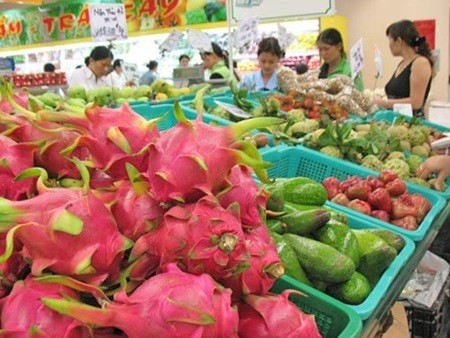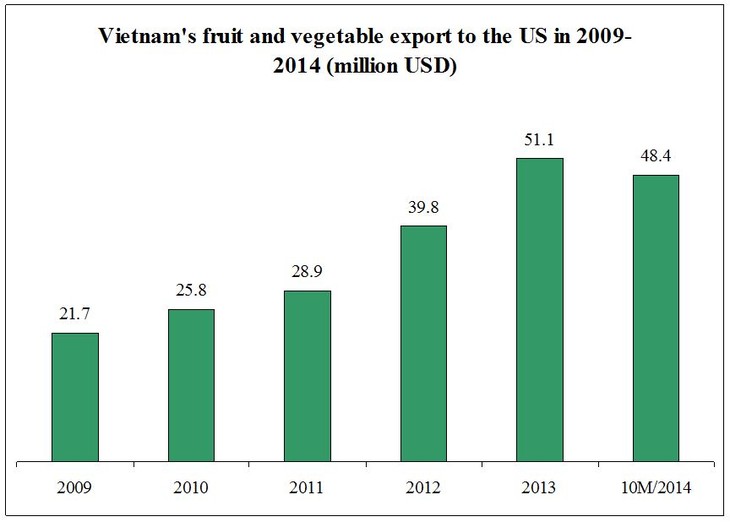(VOVworld) – Vietnam’s litchi has recently been exported to the US, Australia, France, and Malaysia. This is a positive sign for exporters of several other specialty fruits of Vietnam.
 |
| The MoU is expected to help litchi farmers apply hi-tech application to produce standardised products eligible for export to foreign countries in 2015 and over the coming years. |
Vietnam has a great potential in farm produce and fruit exports but its products haven’t got a firm foothold in the international market due to restrictions in cultivation technology, preservation, and promotion.
Vietnam must improve its food safety, production, and set up large-scale specialized fruit growing zones to ensure product quality and origin certification in order to enter the world’s most demanding markets.
Nguyen Thi Hoang Thuy, a Vietnamese trade representative in Australia, commented: “Australia’s licensing of Vietnamese litchi is particularly important because Australia has some of the most stringent quarantine regulations. For Vietnam, Australia will open its market for every type of fruit if we can successfully negotiate the conditions for litchi. It means we must satisfy 5 fundamental requirements concerning cultivation zones, facilities for packaging, wrapping, labeling, irradiation treatment, and providing quarantine for consignments before they are exported.”
 |
| The US and Australia also opened their markets to dragon fruit, rambutan and longan, but they must also undergo irradiation to eliminate pathogens and diseases. (Photo: vietnamnews.vn) |
Recent US approval of Vietnamese longan and litchi imports and plans to expand sales of star apples, rambutan, and dragon fruit to Japan, Australia, Nex Zealand, and Taiwan (China) creates big opportunities for Vietnam’s agricultural produce to make inroads on the global market.
But that will require consumption and export management strategies. More programs should be created to advertise Vietnam’s farm products abroad.
One current problem is Vietnam’s small and scattered production scale. Even in specialized fruit cultivation zones, domestic exporters’ capacity remains restricted, especially in post-harvest preservation which affects product quality.
Hoang Trung, Deputy Head of the Plant Protection Department, Ministry of Agriculture and Rural Development, said: “under the Minister of Agriculture and Rural Development’s direction, the Plant Protection Department has worked with the Hanoi Irradiation Center to upgrade irradiation assembly lines. More cold storage and other needed equipment will be provided. If everything goes smoothly as scheduled, a standardized centre for irradiation in the north will become operational by the end of this year.”
 |
| (Photo: vietrade.gov.vn) |
Deputy Minister of Trade and Industry Tran Tuan Anh said that although the US and Australia have agreed to import Vietnamese litchi, Vietnam still needs time to promote its brand.
He claimed that “the biggest difficulty for Vietnam’s farm produce is developing trademarks in the tough markets while competing with other countries’ items. Our current advantage is the farming and production techniques that have been applied in Bac Giang province. Domestic businesses need to ensure output, quality, and specifications meeting the import countries’ technical barriers - decisive factors in Europe, the US, and Australia.”
Recently the Ministry of Science and Technology, the Vietnam Academy of Science and Technology, and the litchi-producing provinces Hai Duong, Quang Ninh, and Bac Giang signed a memorandum of understanding with representatives of six countries to export 100,000 tons of litchi a year.